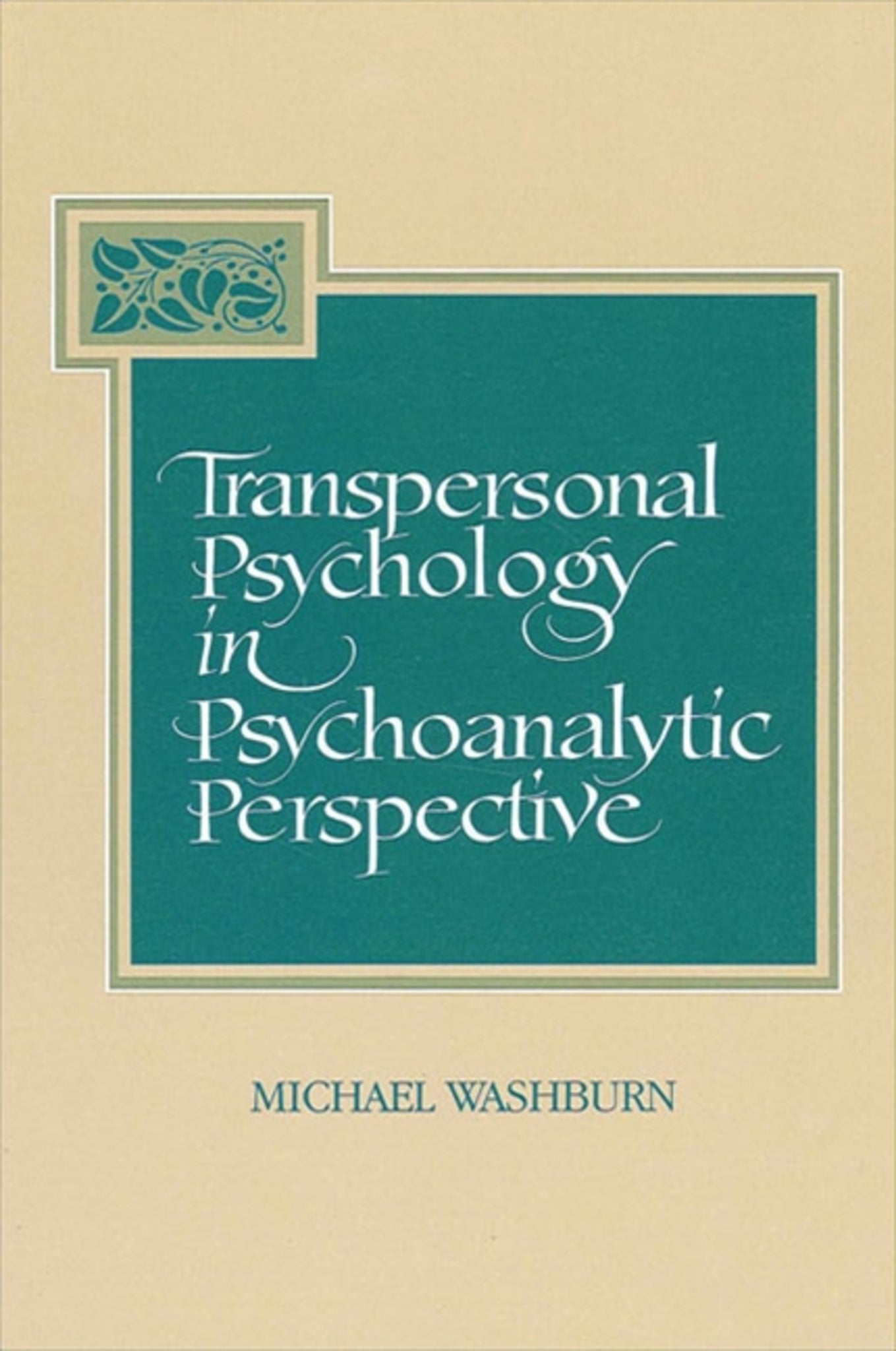We're sorry. An error has occurred
Please cancel or retry.
Transpersonal Psychology in Psychoanalytic Perspective

Some error occured while loading the Quick View. Please close the Quick View and try reloading the page.
Couldn't load pickup availability
- Format:
-
01 July 1994

In this book, Michael Washburn provides a psychoanalytic foundation for transpersonal psychology. Using psychoanalytic theory, Washburn explains how ego development both prepares for and creates obstacles to ego transcendence. Spiritual development, he proposes, can be properly understood only in terms of the ego development that precedes it. For example, many difficulties encountered in spiritual development can be traced to repressive underpinnings of ego development, and significant gender differences in spiritual development can be traced to corresponding gender differences that emerge during ego development.
Washburn draws on a wide range of psychoanalytic perspectives in discussing ego development and uses both Eastern and Western sources in discussing spiritual development. In rethinking transpersonal psychology in psychoanalytic terms, he explains how essential elements of Jungian thought can be grounded in psychoanalytic theory.


"The author has an original theory of human development and self-actualization first expressed in outline form in his Ego and the Dynamic Ground and in this book presented in its fully developed and mature form. It is now more impressive for the range of materials it integrates, for the clearness of its thought, and for the way it brings into unity Freudian thought and the highest experiences of the great mystics of both West and East." — Harold G. Coward, University of Victoria
"The scholarship is impeccable, the theoretical dimension is rigorous, and the critical thinking is strong." — David M. Levin, Northwestern University
"Washburn's successful rapprochement of two of the most important psychodynamic traditions—psychoanalysis and transpersonal psychology—constitutes a major theoretical contribution to psychology." — Steven M. Rosen, City University of New York, College of Staten Island
Preface
Acknowledgments
Introduction
1. The Sources of Experience in Infancy
The Nonegoic Core of the Psyche
The Traditional View of the Infant's Experience
The Nonegoic Core as a Source of the Infant's Experience
The Nonegoic Core and the Preoedipal "Object"
Conclusion
2. Ego Formation and the Origins of Dualism in Early Childhood
The Early Preoedipal Period
Rapprochement, Ambivalence, and the Splitting of the Great Mother
The Repressive Underpinnings of Object Constancy
The Oedipus Complex and the Consolidation of Ego Dominance
Conclusion
3. Ego and Gender
Gender Asymmetries in Preoedipal Development and Consequent Gender Disparities in Later Life
Gender Variations in the Oedipus Complex
Gender Differences and Superego Formation
Narrow versus Wide Gender Differences
Gender Differences in the Context of Patriarchal Dualism
Conclusion
4. Ego Development and Dualism in Latency
Psychodynamics
Object Relations
Ego Development
Existential Orientation: Playful Exploration of the World
Conclusion
5. Ego Development and Dualism in Adolescence
Psychodynamics
Object Relations
Ego Development
Existential Concerns: Identity Testing and Identity Anxiety
Conclusion
6. Ego Development and Dualism in Early Adulthood
Psychodynamics
Object Relations
Ego Development
Existential Project: Earning Being and Value—The Identity Project
Conclusion
7. Midlife Transvaluation and Pathologies of the Self
The Disillusionment of the Mental Ego
Pathologies of the Self
Depression
Narcissism
Existential Syndrome
The Divided Self
The Borderline Condition
Conclusion
8. The First Stage of Transcendence: The Dark Night of the Senses
Pride Goeth Before a Fall
The Inverse Law of Spiritual Development
Passive Purgation
Aridity
Weakness of Will
The Bitter Pill of Self-Knowledge
On the Edge: Transition to the Dark Night of Spirit
Emergence of the Mystery of Faith
Conclusion
9. The Spiral Path of Transcendence: Awakening, Regression, Regeneration
Awakening: Rupture of Planes and Encounter with the Numinous
Regression in the Service of Transcendence
Redemptive versus Pathological Regression: On Distinguishing the Dark Night of Spirit from Psychosis
Regeneration in Spirit
Conclusion
10. Gender and Transcendence
Empowerment versus Withdrawal
Jung's Conception of the Anima and Animus: A Critique
Jung's Conception of the Anima and Animus: A Reconstruction
God the Father and the Great Goddess
Conclusion
11. The Goal of Transcendence: Integration
Features of Integrated Life
The Marriage of the Ego and the Dynamic Ground
Integration as Goal and New Beginning
Conclusion
Notes
References
Index



